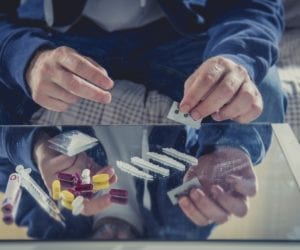Examples of Recreational Drugs

Learn the facts about recreational drug use, including examples of recreational drugs and their effects
When your children ask you about recreational drugs, will you know what to tell them? Results from the National Institute on Drug Abuse’s 2015 National Survey on Drug Use and Health show that an estimated 27.1 million individuals or one in ten people over the age of twelve used recreational drugs in the past year. Many people who try recreational drugs are unaware that it is possible to become addicted to some drugs after using them just one or two times. Having an honest discussion with your children about the dangers of recreational drug abuse, including examples of recreational drugs and their effects, may be the best way to keep them from a lifetime of addiction.
Examples of recreational drugs and their effects
Any psychotropic substance that is taken for enjoyment or other reasons not related to a medical condition can be considered a recreational drug. The problem with recreational drug use is that so many people who begin using casually end up addicted. In 2015, approximately 20.8 million people aged 12 or older had a substance abuse disorder. When you look at the following examples of recreational drugs and their effects, you can see the scope of the problem. Many recreational drugs have seemingly benign effects that only become problematical once users become addicted.
Alcohol
Alcohol is legal for adults, so it is not surprising it is the most widely used recreational drug in the United States. In 2015, 138.3 million Americans aged 12 or older reported that they were using alcohol. The effects of having one or two drinks of alcohol are pleasant, such as euphoria, reduced inhibitions, and mild motor impairment. Alcohol is extremely addictive, however, and at higher doses can cause violent behavior, liver damage, memory problems, and severe withdrawal symptoms.
Marijuana
Marijuana is the most commonly used illicit recreational drug, popular among users because it creates a mildly euphoric, relaxing, and pain relieving effect. Several states are in the process of legalizing its use for medicinal or recreational purposes. While opinions on marijuana’s addictive qualities vary, chronic use does create memory problems, and may cause impairment of cognitive abilities when used extensively in adolescence.
Other examples of recreational drugs include:
- Heroin
- Cocaine
- Crack cocaine
- MDMA (ecstasy)
- LSD (acid)
- PCP
- Inhalants
- Methamphetamine
- Synthetic cannabinoids
- Tobacco
- Hallucinogens (mushrooms)
Recreational prescription drugs
Prescription drugs are often abused for recreational purposes. The National Institute on Drug Abuse reports that more than 54 million people have used prescription drugs for recreational reasons at some point in their lifetime. The most commonly abused recreational prescription drugs fall into three main categories:
- Opioid drugs: OxyContin, Fentanyl, Vicodin, Percocet, and Codeine
Opioid drugs are prescribed to treat pain. When used recreationally, they create a euphoric, relaxed effect. These drugs are highly addictive and users can quickly begin to experience withdrawal symptoms of pain, nausea, and cramping if they try to abruptly stop. - Sedatives: Valium, Klonopin, Xanax, Halcion, Ambien, Lunesta, Nembutal, Luminal
Prescription sedatives such as benzodiazepines, non-benzodiazepine sleep medications, and barbiturates are popular recreational drugs. These medications have a relaxing effect on users, producing a calm, drowsy, and euphoric feeling. Recreational users can become addicted within two weeks of their first dose, with withdrawal symptoms and craving that persist for years after users stop taking the drugs. - Stimulants: Amphetamines, Adderall, Ritalin, Benzedrine
Stimulant drugs are popular with recreational users who want to extend their alertness or increase their focus. The short-term effects of these drugs are increased alertness, attention, and energy. Over time, the long term effects of stimulant abuse include extreme weight loss, insomnia, and even psychosis.
If you or a loved one needs help with abuse and/or treatment, please call the WhiteSands Treatment at (877) 855-3470. Our addiction specialists can assess your recovery needs and help you get the addiction treatment that provides the best chance for your long-term recovery.

